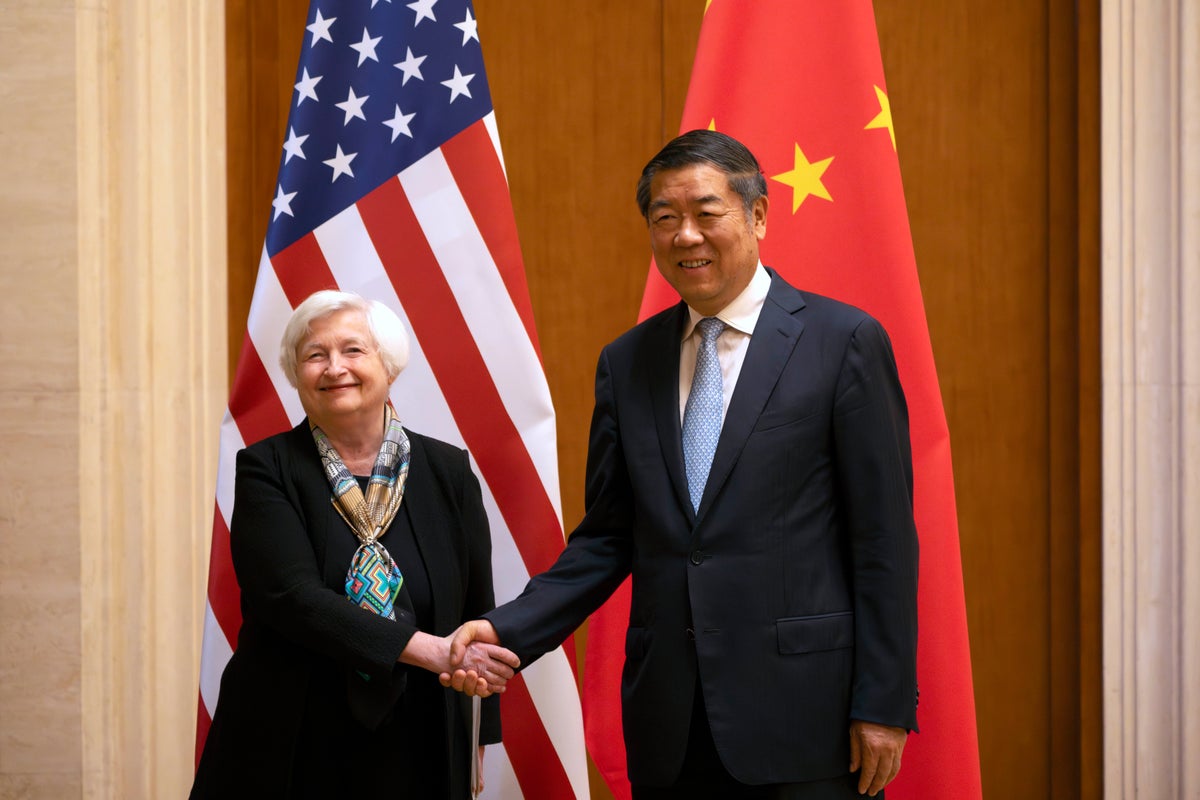
Janet Yellen said her bilateral meetings with Chinese officials in recent days were “direct” and “productive” and even expressed confidence that her brief visit had advanced efforts to put the US-China relationship on a “surer footing”.
The US treasury secretary on Sunday concluded her four-day trip to Beijing that was Washington’s latest attempt to repair ties with China as the two superpowers have frequently been at loggerheads with each other.
“The US and China have significant disagreements,” Ms Yellen told a press conference at the US embassy in Beijing, mentioning Washington’s concerns about what she called “unfair economic practices” and punitive actions against US firms.
“But President Biden and I do not see the relationship between the US and China through the frame of great-power conflict. We believe that the world is big enough for both of our countries to thrive.”
On Saturday, Ms Yellen told vice premier He Lifeng that a 2022 record in bilateral US-Chinese trade showed there is “ample room for our firms to engage in trade and investment”.
Ms Yellen also suggested that the US and China need to communicate better.
“Amid a complicated global economic outlook, there is a pressing need for the two largest economies to closely communicate and exchange views on our responses to various challenges,” she said, adding that such an effort would “help both sides more fully understand the global economic outlook and make better decisions to strengthen our economies”.
Ms Yellen said the US would continue to communicate directly its concerns to China— (Getty Images)
Moving forward, Ms Yellen said that the US would continue to communicate directly its concerns about specific economic practices and would take targeted actions to protect its national security.
She urged China not to allow any disagreements to “lead to misunderstandings, particularly those stemming from a lack of communication, which can unnecessarily worsen our bilateral economic and financial relationship”.
Ms Yellen also called for the world’s two largest economies to combat the “existential threat” of the climate crisis among many other issues.
Additional reporting by agencies







